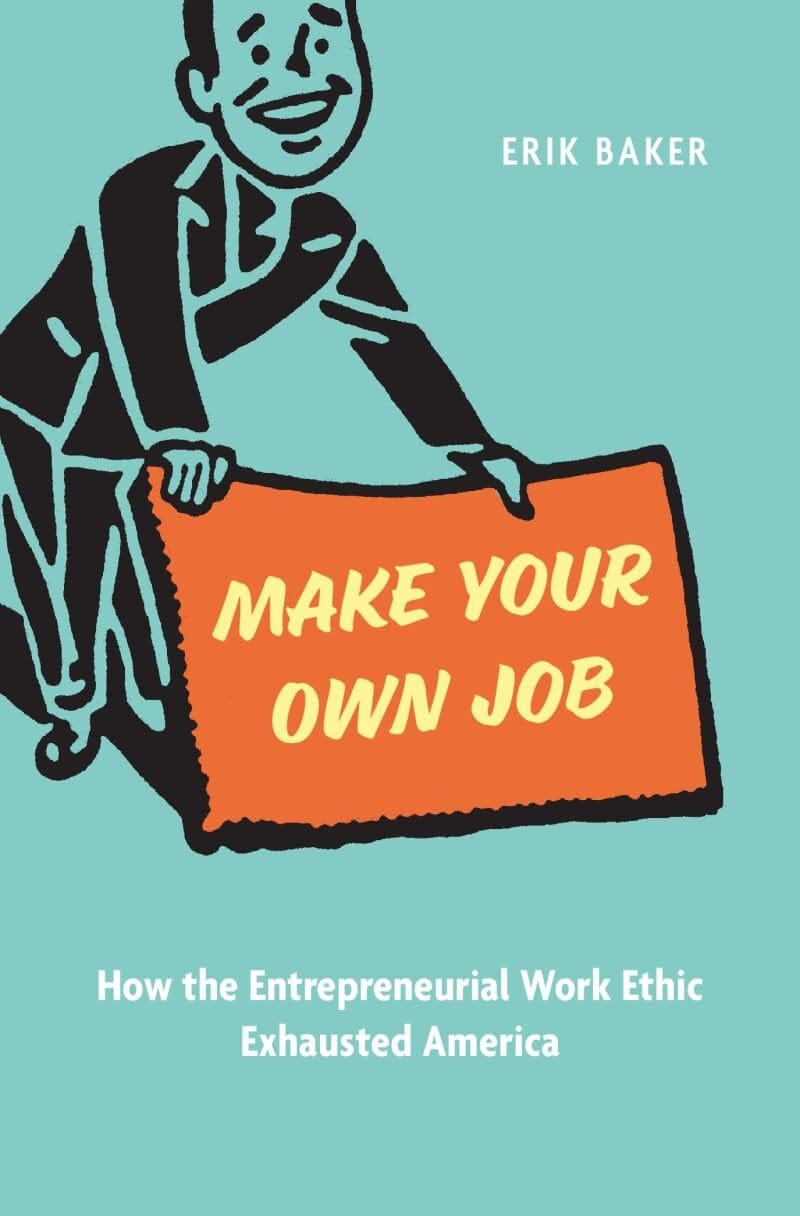The Hustle Myth: A Review of Eric Baker’s "Make Your Own Job"
Eric Baker’s Make Your Own Job examines how America’s obsession with entrepreneurialism transformed work into an exhausting, class-blind ideology.

Eric Baker’s Make Your Own Job: How the Entrepreneurial Work Ethic Exhausted America is a scalpel-sharp dissection of a modern American pathology: our unrelenting obsession with work, wrapped up in the glittering but hollow promises of entrepreneurial self-actualization.
The premise is deceptively simple: why do Americans, regardless of class, race, or geography, believe in the cult of loving what you do—even when it burns us out, alienates us, or outright fails to deliver? Baker’s work is a tightly constructed intellectual history tracing the emergence and evolution of this entrepreneurial work ethic, and it’s as readable as it is deeply researched.
If you think this is another dull screed against capitalism, guess again. Baker threads together self-help pamphlets, corporate strategy manuals, Austrian economics, and even a healthy dose of new thought spirituality to uncover the Frankenstein monster that is today’s hustle culture. And for those of us who like our history with a twist of dark humor, Baker knows how to wield a biting wit. (One particularly memorable moment involves the grimly ironic rise of Amway, which managed to commodify both optimism and family values while ruining both for many participants.)
Baker begins with a bang—literally, the tragic and fiery death of Zappos founder Tony Hsieh. This opening sets the tone for a book that manages to feel like a murder mystery and cultural critique rolled into one. It’s not just a takedown of entrepreneurialism as an ideology; it’s an attempt to understand its stranglehold on the American imagination. Why does the promise of “making your own job” remain so seductive? Why does it survive—nay, thrive—when so many of its promises have been revealed as lies?
Baker doesn’t let anyone off the hook. He connects the dots from the Gilded Age hucksterism of Dale Carnegie and Norman Vincent Peale to Silicon Valley’s snake oil peddlers of “disruption.” He digs into the role of figures like Henry Ford and the Koch brothers, showing how they shaped corporate America’s vision of itself. But what makes this book shine is Baker’s keen ability to show how this ideology seeped into the culture at large—how even a factory worker in Pennsylvania or a small-town Avon salesperson is made to feel that “success” depends on self-reliance, creative thinking, and just the right mindset (union solidarity be damned).
At the book’s heart is a scathing critique of how entrepreneurialism masks class hierarchies, erodes collective solidarity, and channels dissatisfaction into a self-destructive loop. You’re not unhappy because the system is broken, entrepreneurialism tells us—you’re just not hustling hard enough.
Make Your Own Job is a must-read for anyone trying to make sense of why we’re all so tired, so anxious, and yet still so convinced that “doing what you love” will save us. Spoiler: it won’t. Baker makes that abundantly clear, but he does so without nihilism. His prose has a way of cutting through the nonsense while still leaving room for empathy—for the dad who quit his factory job to be his own boss, or the young startup founder who bought into the dream until it consumed them.
If nothing else, this book is a reminder that the “American Dream” of work as salvation was never sustainable. It’s time we wake up from that nightmare.







